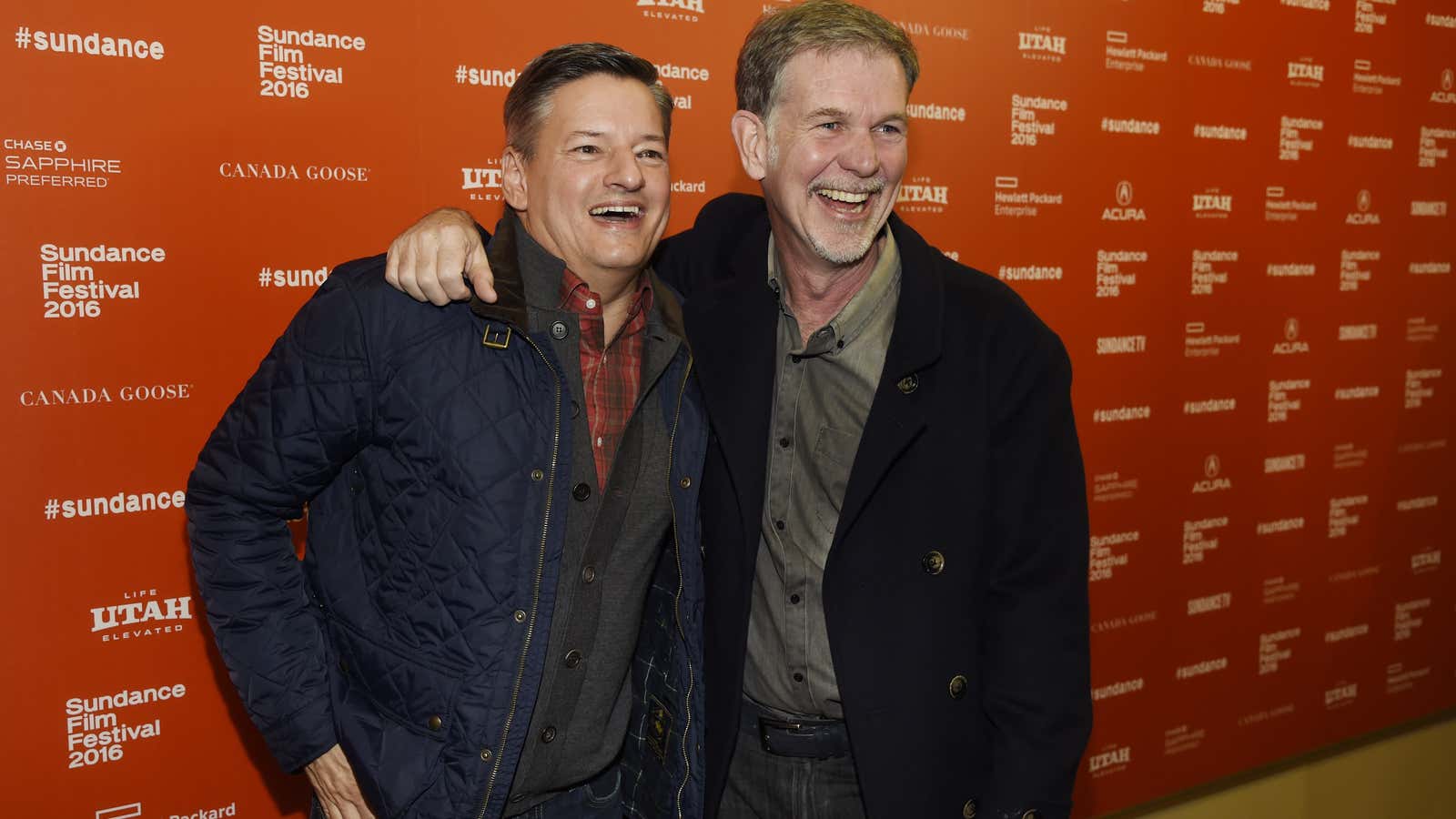Every January, independent filmmakers try to drum up buzz for their movies in quaint Park City, Utah, at the Sundance Film Festival. If they’re lucky, deep-pocketed movie studios will buy the rights to distribute those films.
A few years ago, Netflix and Amazon were non-entities at Sundance. This year, though, they’re the talk of the town—and they’re spending a lot more on content (paywall) than the traditional studios which for years had a stranglehold on the Sundance bidding process.
Amazon, which made its move into the film business last year, outbid Hollywood heavyweights Fox and Universal for the rights to distribute Manchester by the Sea—a Sundance debut that’s already garnering awards buzz. Amazon reportedly paid $10 million for the film, and will give it a traditional theatrical run to ensure it qualifies for all the major awards. The film will stream on Amazon Video thereafter.
Netflix, meanwhile, offered an extraordinary $20 million for Birth of a Nation, a film about Nat Turner’s 1831 slave rebellion, and another of the festival’s breakout hits. The filmmakers instead decided to sell to the more traditional studio Fox Searchlight, for a lesser sum of $17.5 million, likely because it’s the same studio that led 12 Years a Slave to an Oscar for best picture in 2014.
While Netflix ultimately lost out on the film, its mere presence in the bidding war drove up the asking price to unprecedented heights. Fox’s winning offer was the biggest deal for a Sundance film ever.
About halfway through the 11-day festival, Netflix has bought the distribution rights for three films, while Amazon has bought four. As of this writing, no traditional studio has bought more than one film.
If this feels like a potential paradigm shift in independent movie distribution, that’s because it is. Both Amazon and Netflix have already turned themselves into respected television outlets; now they’re eager to use their deep pockets to evolve into big-time movie studios.
Paying top-dollar for quality content comes with the territory. Netflix alone will spend an unfathomable $6 billion on content this year, easily dwarfing every other TV company in existence (HBO, for instance, reportedly spent about $2 billion on content in 2015—Netflix spends that much on US content rights alone) and putting the company squarely in the same spending bracket as the major film studios.
The traditional studios, meanwhile, have recently been more selective in choosing their films, as the smaller, “indie” movies popular at Sundance have had a tough time selling tickets (paywall). Many of the filmmakers are happy to sell their films to an online service like Netflix or Amazon, which can stream the film to millions of people around the world.
Still, others prefer that their films have a more traditional theatrical release:
Birth of a Nation aside, it’s likely that we’ll look back on 2016 as the year that the internet took over Sundance.
Amazon and Netflix differ somewhat in how they approach distribution. Amazon typically treats its films like any traditional film studio would, by releasing them first in theaters and then rolling out sweeping awards campaigns.
Netflix, though, uses a strategy that’s drawn the ire of theater chains and movie studios. The streaming service likes to release its films online and in theaters simultaneously—perhaps one reason why it lost out on Birth of a Nation despite making the bigger offer. Some also blame the strategy for why Beasts of No Nation—a huge critical success—was shut out of the Oscar nominations this year.
